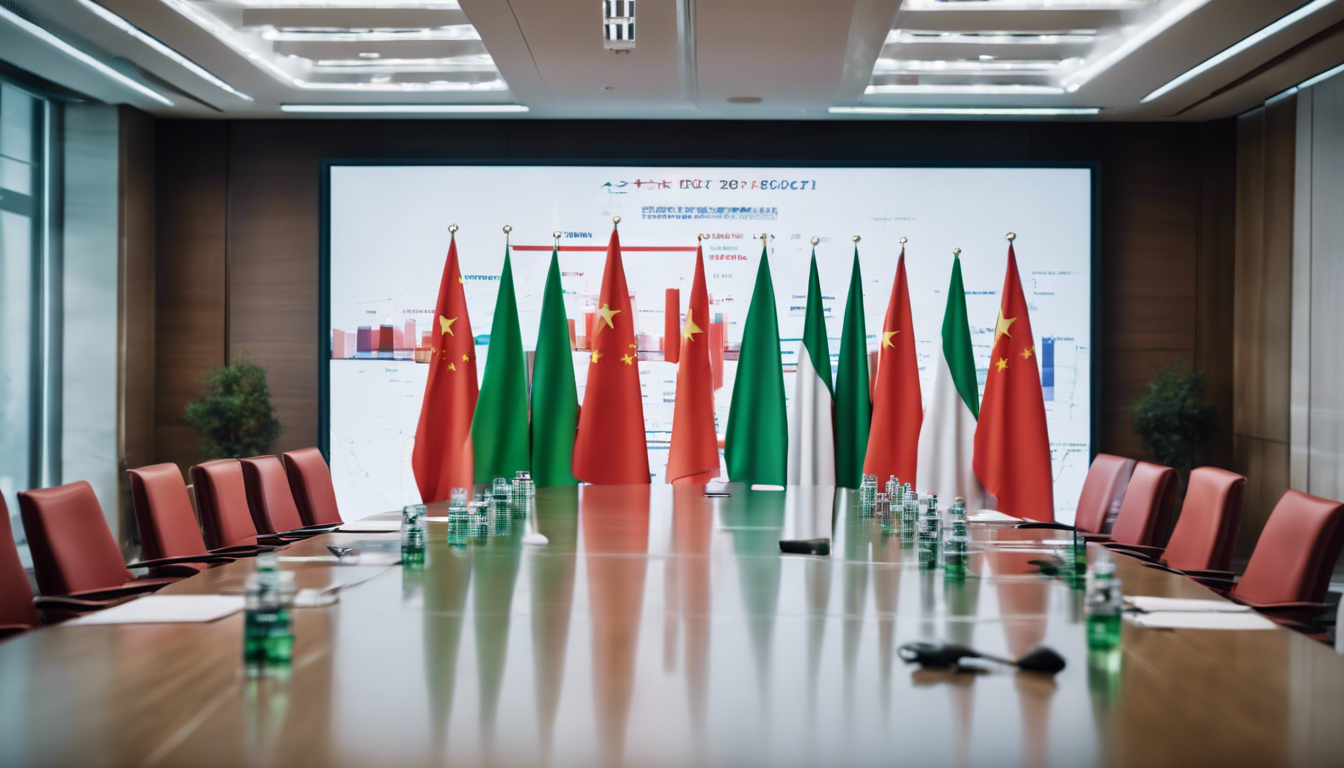Italy and China, two nations with rich histories and strong economic ambitions, are increasingly looking to each other to bolster their economies through strategic partnerships and investments. With China’s ever-expanding global economic footprint and Italy’s strategic position in the Eurozone, the dialogue between these two countries is more important than ever for shaping the future of international trade and economic policy.
The bilateral relationship took a significant step forward with Italy joining China’s Belt and Road Initiative (BRI) in 2019. This marked Italy as the first G7 country to officially participate in the initiative, which seeks to enhance global trade links. This move was seen both as a strategic alignment by Italy to attract Chinese investments and as China’s stepping stone into wider European trade and economic affairs.
The cornerstone of the current Italian-Chinese economic dialogue hinges on mutual benefits in trade, investment in infrastructure, and technological advancement. Both countries have expressed their commitment to creating a transparent, efficient, and fruitful economic environment that supports businesses and trade.
A key area of focus is the development of Small and Medium Enterprises (SMEs) in both countries. The Italian Government has been actively facilitating trade missions and business-to-business meetings. Such initiatives are designed to assist Italian SMEs in navigating the expansive Chinese market, and similarly, Chinese SMEs in understanding the European market dynamics.
Moreover, both governments are streamlining efforts to attract investments. Italy, with its rich cultural heritage and manufacturing prowess, and China, with its vast technology and infrastructure capabilities, are looking to leverage their unique strengths. For instance, the recently launched Sino-Italian cooperation platform aims to connect Chinese investors with Italian startups and technology firms looking for growth opportunities.
Energy and environmental technologies also play a critical role in the Sino-Italian economic dialogue. With Italy’s commitment to the European Green Deal and China’s ambitious targets to become carbon neutral by 2060, collaborations in sustainable development projects are increasing. These include developments in green technologies and innovations such as electric vehicles, solar panels, and smart city technologies that align with both nations’ environmental goals.
Historically, Italy and China have maintained a complex but fruitful relationship. The Silk Road, an ancient network of trade routes that connected the Roman Empire to China, is often cited as one of the earliest forms of long-distance trade relations. Today, echoing this historical connection, the modern ‘Silk Road’ initiatives under the BRI aim to reinstate such economic corridors.
Cultural exchanges also enhance economic ties. Both nations have engaged in numerous cultural diplomacy activities that not only deepen mutual understanding but also open up opportunities for economic collaboration. These relationships often pave the way for smoother negotiations and more robust economic agreements.
Experts believe that the growing Italy-China economic dialogue is set to redefine trade patterns within Europe and Asia. Dr. Marco Valentini, a senior economist specializing in European-Asian trade relations, states, ‘The Italy-China economic corridor could potentially alter the trade dynamics in Europe. By providing direct access to the Asian markets, Italy can significantly benefit from reduced trade barriers and increased export opportunities.’
Looking ahead, the trajectory for Italy-China economic relations appears promising. With strategic investments and cooperation expanding into new sectors such as digital innovation and green technology, the two countries are paving the way for a redefined economic partnership that promises mutual growth and development. This continuous dialogue is not merely about strengthening trade and investment but also about fostering a long-term partnership that could set a precedent for global economic relationships.
You may also like
Emerging Countries and Sectors: Investment Opportunities
This article explores the promising investment opportunities in emerging countries and sectors, outlining their development strategies and potential impacts on the global markets.
Fiscal maneuver 2025 : Impacts on Household Savings
The 2025 budget plan proposed by the Italian government is poised to bring significant changes with potential impacts on the savings of Italian families. This article explores the details of the fiscal maneuvers, the expected economic shifts, and the perspectives from experts and policymakers.
The Rise of Real Estate Sales in Small Italian Towns
In recent years, there has been a significant increase in real estate transactions within Italy’s smaller towns. This trend is fueled by a growing interest in the unique lifestyle these locations offer, coupled with a surge in remote working opportunities. The article delves into the factors contributing to this phenomenon and identifies some of the most desirable areas for potential buyers.
The New House Bonus Rules: Tax Deductions and Eligibility
The new house bonus rules introduce significant changes to tax deductions for home renovations and energy efficiency improvements. This article delves into the specifics of these regulations, eligibility criteria, and benefits, offering a thorough analysis for homeowners.
How 100% Mortgages work for Young People ?
The 100% mortgage scheme aimed at young individuals has become a significant avenue for aspiring homeowners. This guide explores how these mortgages function, the necessary guarantees, and the eligibility criteria for individuals seeking such financial assistance.
